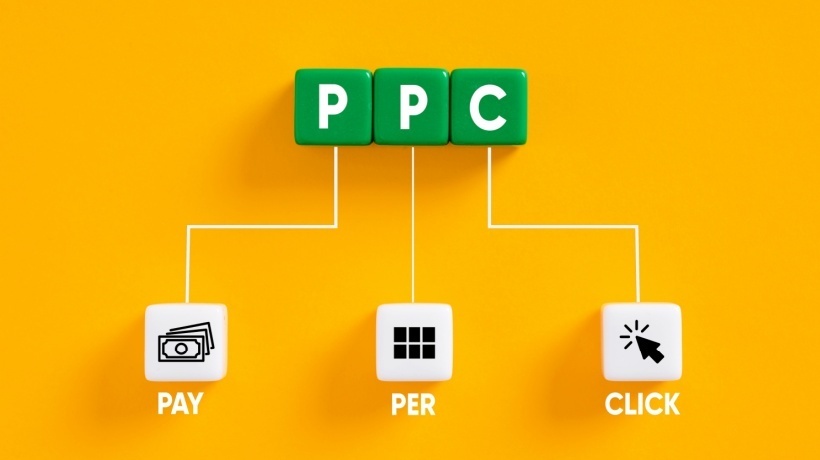Reasons Why LMS Vendors Need To Be Familiar With A Pay-Per-Click Platform
Indeed, the worldwide LMS market is said to be worth over $7 billion in 2018, with most of this revenue being generated in North America.
At least, that’s the view of the USA-based organization MarketsandMarkets, but, owing to the fragmented and fluid nature of the LMS sector, any such figure is influenced by assumptions and guesstimates. Moreover, only in the last couple of years has any reliable data on LMSs begun to emerge from China and Russia—both of which have sizeable economies and, thus, organizations which can benefit from using Learning Management Systems.
The LMS Market Is Still Expanding
Nonetheless, the world-renowned LMS market commentator, Craig Weiss, CEO and Lead Analyst of The Craig Weiss Group LLC, has spent many years reviewing and commenting on LMS markets around the world. Recently, he reported that the LMS market is still expanding, with more vendors entering the space than leaving it.
Craig, who produces a 'Top 50 LMS Report' annually, claims to currently track at least 1,225 systems around the world. In an illustration of LMS market growth, as recently as 2015, he claimed that there were some 645 LMSs in the world and, some 3 years ago—at the start of 2014—that number was just 582.
Longevity and continuing market growth would indicate that LMSs have a useful purpose. Many factors have an effect upon an organization’s health and, to some degree, each of them is influenced by the use of an LMS. These factors include: Salesforce productivity; customer and partner training; developing and retaining employees; regulatory compliance; enterprise software implementations; quality initiatives, and strategic communications.
LMSs Are Adding Value
Known in the education world as a Virtual Learning Environment (VLE), LMSs can add value in 5 areas for the organizations using them for:
- Planning.
To analyze what training is being successful; the cost and business implications if classes run at below capacity, and so on. - Blending.
An LMS should manage all forms of training delivery, not just online delivery. - Controlling.
If an organization’s learning materials catalogue isn’t controlled, the business can be damaged. After all, people can’t spend all their time learning. They have jobs to do. An LMS combines the control and delivery of learning materials, aiming to deliver the right materials to the right person, the right time. It will also identify which staff members have studied which learning materials. - Delivering/Assessing.
While an LMS can deliver online learning to a person, it’s also important to know how useful that learning has been to that learner. An LMS must be able to assess the value of the learning that each individual has received. - Reporting.
An LMS can produce reports on what’s happening within the organization’s learning system, especially which people have been trained to certain standards and which people are compliant with industry knowledge and competency regulations.
However, opinions are divided on whether LMSs produce reports that are appropriate for the business, even if their reports are useful for the Learning and Development (L&D) professionals who administer them.
In any case, LMSs should automate all these processes and, so, streamline them. It’s this automation and streamlining that has seen the LMS world market grow and LMS producers, and vendors, proliferate.
As this market grows, it becomes more difficult for an individual LMS producer to be 'seen' amid the plethora of providers. So, to help LMS producers and vendors promote their products and services, the network-based media and publishing company, eLearning Industry, has developed a Pay-Per-Click (PPC) platform.
A Knowledge-Sharing Platform
Comprising the largest online community of eLearning professionals in the industry, eLearning Industry was created as a knowledge-sharing platform to help eLearning professionals and Instructional Designers connect in a safe online community where they can stay up-to-date with the latest industry news and technologies, and find projects or jobs.
Christopher Pappas, eLearning Industry’s managing director, explained:
"LMS vendors can use this PPC platform to generate traffic to their websites and get immediate results. Furthermore, the platform’s users can get a visual perspective of their PPC campaign's activity – including how well it performed for their business on any given day. The platform’s in-built metrics allow LMS vendors to fine-tune their PPC campaigns. Notably, these metrics enable users to review how much their campaign actually costs – allowing them to quantify the results that eLearning Industry is bringing to their business".
Christopher added that, unlike competitor services, which charge vendors, on average, some $2 to $25 per click, the costs of the eLearning Industry platform’s premium package start at 50 cents per click, for a monthly cost of $250—in other words, some 500 clicks per month.
3 Ways PPC Platforms Can Help LMS Vendors Mature
The eLearning Industry's PPC platform allows users to have an LMS product profile with full feature breakdown, product rating, and reviews, visible to thousands of eLearning professionals and companies. In addition, the PPC platform enables vendors to:
- Place their listing.
Hyperlinked to their target URL—in the position that reflects their bid. In other words, the higher the bid, the higher their position in the listings. - Have more control over how their money is spent.
This is done through location-based bidding. - Track their campaign’s performance.
That is, identify the conversions they’re getting from the directory—by enabling the conversion tracking feature.
The Buyers’ Checklist
Faced with this platform, prospective LMS purchasers who want to find the 'right' LMS for their organization should:
- Decide what’s available.
- Involve everyone in the specification process.
- Learn the industry jargon.
- Speak to those who’ve implemented other systems and find out the benefits they expected – and what they actually received.
- Design your own request for information (RFI).
- Compare like with like.
- Create your own request for a quotation (RFQ).
- Speak to the LMS’s clients – those who’ll actually be using the system.
- Re-evaluate from the top down – then ask yourself 'Is this the right thing for us?' If it is, sign the cheque.








